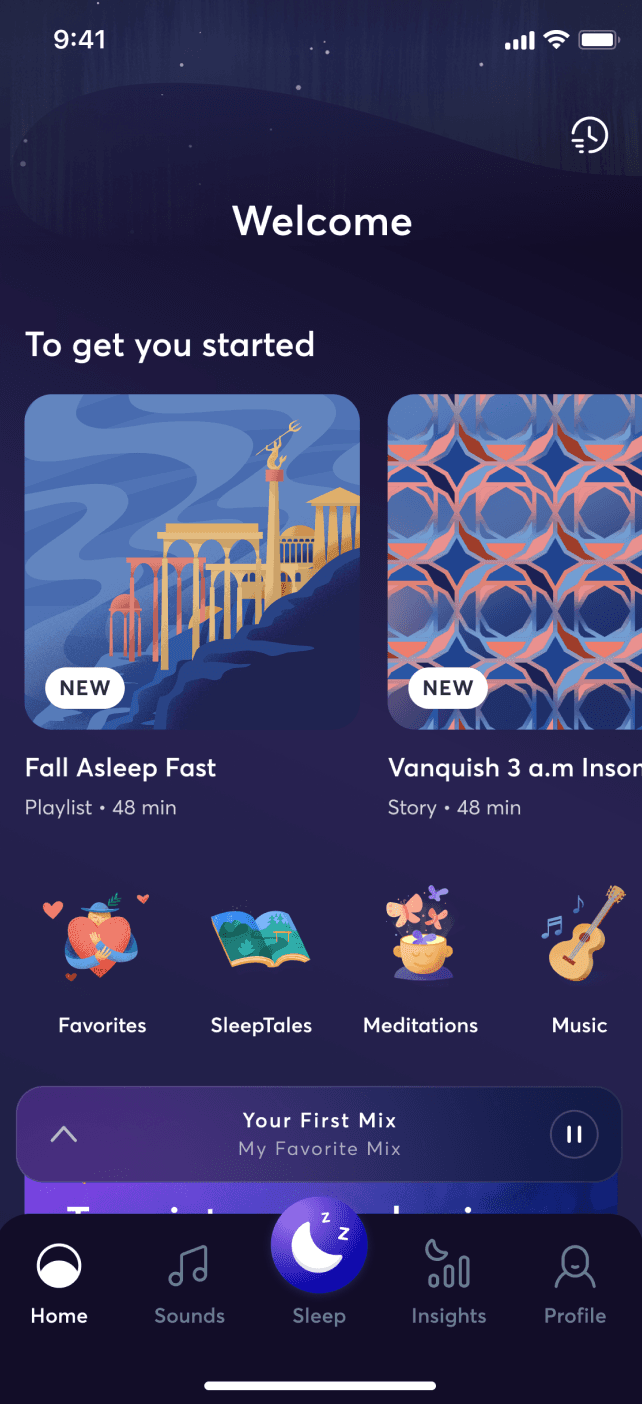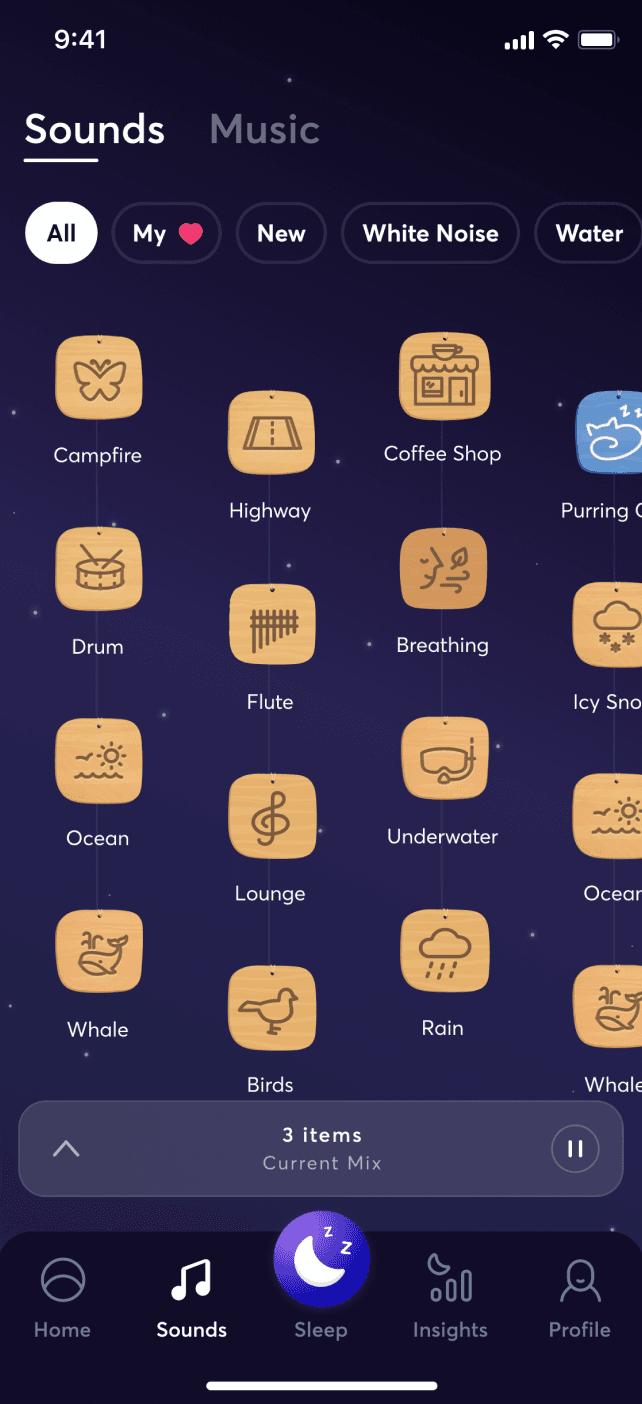
Dream Journals Explained
Do you keep a dream journal? A lot of people do and for a good reason! Dreams are a great way to explore your subconscious and can offer some insight into your personality.
If you've never kept a dream journal before, or if you're looking for tips on making the most of it, read on!
In this post, we'll discuss why dream journals are important and some tips on how to start keeping dream memories via journaling. Keep reading to learn more!
What Exactly is a Dream Journal?
A dream journal is a personal record of your dreams. Keeping a dream journal can help to understand your dreams and remember them more clearly.
You may find that you dream about similar topics or themes repeatedly. By keeping track of your dreams, you can begin to see patterns and notice what may trigger certain dreams.
Dream journals can be written in or typed into a notebook, diary, or computer. You can also use an audio recorder to document your dreams. Some people prefer to sketch their dreams in a visual journal.
Regardless of your format, the most important thing is to describe your dream in detail. Include everything you can remember, no matter how small or insignificant it may seem. Over time, you may find that your dreams become more vivid and easier to remember. Dreams are equal parts psychological and neurological.
Why Pay Attention to Dreams?
Dreams are not simply auditory or visual hallucinations that occur during sleep. Dreams are a creative experience that allows our entire being to process the day's events. Every dream allows us to explore our emotions and work through our problems.
Dreams are also a way to access our subconscious mind, which can help us to heal from trauma and better understand ourselves. Paying attention to our dream life can be a powerful tool for self-discovery and growth. So, writing them down is a good habit for dream recall.
What are the Benefits of Keeping a Dream Diary?
Dreaming is a normal, healthy process that helps us process information and events from our waking lives. According to research, we dream anywhere from 2-5 times per night. Although most dreams are forgotten soon after we wake up, some may stay with us for days, weeks, or even years.
Keeping a dream journal can be a beneficial way to track our dreams, interpret their meanings, and reflect on our subconscious thoughts and feelings. Additionally, journaling can help boost our creativity and problem-solving abilities.
Some of the benefits of keeping a dream journal include:
- Increased self-awareness: A dream journal can help us better understand ourselves, our goals, and our fears.
- Improved mental and emotional health: Writing down our dreams can help reduce stress, anxiety, and depression.
- Greater insight into our waking lives: Our dreams often reflect what’s going on in our lives. Keeping a journal can help us connect our dreams and everyday experiences.
- Increased creativity: The act of journaling can help boost our creativity and problem-solving abilities.
- Help decipher complicated emotions: Dreams can be a way for our subconscious to process complicated or unresolved emotions. Writing them down can help us make sense of these feelings.
- Help practice lucid dreaming: Lucid dreaming is when you become aware that you’re dreaming and can control the dream. Some people use journaling to increase their chances of having a lucid dream.
Tips to Get Started with Dream Journaling
- Find a suitable journal - Look for a journal that fits your style. Some people prefer small, portable journals, while others like larger ones that can act as scrapbooks. Choosing a journal you'll be comfortable writing in and want to keep coming back to is important.
- Set an intention to explore your dreams - When you start writing in your journal, set the intention to explore your subconscious mind and learn more about yourself. This will help guide your dreaming process.
- Don't wait -journal first thing when you wake up - As soon as you wake up from a dream, jot down some notes about it in your journal. Don't wait too long, or you may forget important details.
- Be specific - When recording your dreams, be as specific as possible. Include as much detail as you remember, such as colors, emotions, sensations, and dream symbols. This will help you get a better understanding of your dreams.
- Compare your dreams to waking life - When you're looking back through your dream journal, see if there are any connections between your dreams and your waking life. Are there any patterns? Do certain symbols keep appearing? This can give you clues about what your dreams are trying to tell you.
- Write in the present tense - When writing about your dreams, use the present tense. This will help you feel like you're reliving the experience, which can be helpful for interpretation.
- Keep it up - The more you journal, the more you learn about yourself and your dreaming process. So don't give up if you don't see results right away. Keep writing and exploring, and you'll eventually start to unlock the mysteries of your dreams.


What Exactly Do I Write in a Dream Journal?
The most important thing is to capture the emotions and imagery of the dream, as these are often the most revealing clues to its meaning.
It can be helpful to write down the dream as soon as you wake up before your mind has a chance to forget any details.
However, if you can't remember all the details of the dream, don't worry - just write down whatever you can recall. Over time, you may find that certain patterns emerge in your dreams, which can provide valuable insights into your unconscious self.
Does Keeping a Dream Journal Make You Dream More?
Dreams have been a source of fascination for people throughout history. Many cultures believe dreams are a way for the subconscious to communicate with the conscious mind, and there is a rich tradition of dream interpretation.
Today, some people keep dream journals to understand their dreams better. But does writing down your dreams make you dream more?
There is no definitive answer to this question, as everyone experiences dreams differently. However, keeping a dream journal can help you remember your dreams more vividly and may also help you identify patterns in your dreams.
If you find that you are dreaming more often after keeping a journal, it may be because you are simply paying more attention to your dreams.
Alternatively, it could be that the act of journaling helps to trigger forgotten memories, which then manifest as new dreams.
Ultimately, whether or not keeping a dream journal affects the frequency of your dreaming is something that can only be determined by personal experimentation.
What to Do With My Dream Findings?
If you regularly journal your dreams, you may eventually start to wonder what you can do with all of this information.
After all, it's one thing to record your dreams simply, but it's another to do something with them. Fortunately, you can do several different things with your dream findings. For example, you could use them to jumpstart creative exercises like painting or storytelling.
Or, if you're interested in lucid dreaming, you could use your journal to help guide your exploration. The sky's the limit - it all depends on what interests you and what you feel would be helpful for you.
Besides, you don't have to do anything about your dreams if you don't want to. Just writing them down can be helpful in and of itself.
So, if you are stuck with what to do next with your dream journaling practice, don't worry - plenty of options are available. Just pick something that sounds fun or interesting, and go for it!
What's the hidden message behind dreaming of cats? Learn More
Can Dream Journal Help with Nightmares?
Dreams can be powerful and often strange things. They can be frustrating, confusing, or even terrifying. For some people, nightmares are a regular occurrence. While there are many ways to deal with nightmares, some people find that keeping a dream journal can be helpful.
There are several reasons why this may be the case. Firstly, by recording your dreams, you can process their content consciously. This can help you to make sense of the dream and figure out what it might be trying to tell you.
Additionally, linking the dream to any traumatic experiences can help reduce the frequency of nightmares.
Finally, keeping a journal provides a written record of your dreams. This can help spot patterns or symbolism that you might otherwise miss.
Ultimately, whether or not a dream journal effectively reduces nightmares depends on the person. However, this simple tool can be a valuable way of dealing with these troubling dreams for many people.
What If I Don't Remember my Dream?
It is said that everyone dreams every night, but some people just do not remember their dreams. If you are one of those people who would like to start recalling your dreams, there are some things that you can do.
- Do nothing until you've journaled your dream. Dreams are often fragmentary and elusive, disappearing quickly after we wake up. As soon as you wake up from your dream world, take a few minutes to write down everything you can remember about your dream, no matter how insignificant it may seem. over time, you will better understand the symbolism and patterns in your dreams, making it easier to interpret their meaning.
- Set the alarm. One method of increasing your chances of remembering your dreams is to set the alarm for a few hours before you normally wake up. This ensures that you will be awake after a dream cycle when dreams are more vivid. Another helpful tip is to keep a dream journal by your bedside so that you can record your dreams as soon as you wake up. With time and practice, you should be able to remember your dreams more frequently.
- Ask questions.
Likely Questions to Ask When Journaling My Dream?
When you journal your dreams, it can be helpful to ask yourself a few questions to gain a deeper understanding of the dream.
What was the overall feeling or tone of the dream? Was it positive or negative? What were the main characters in the dream, and what role did they play?
What do you think the dream was trying to tell you? Did anything in the dream remind you of something from your waking life? Did you notice the dream themes or dream images?
Answering these questions can help you gain insights into your dreams' meaning and how they may be connected to your everyday life. Journaling your dreams can also be a great way to track patterns and notice any changes over time.
As you journal your dreams regularly, you may find that you begin to remember them more vividly and that they become more meaningful to you.
Here are questions and prompts to help you recall your dreams upon waking.
1. What did I dream about?
2. What did the dream make me feel?
3. What do I think the dream meant?
4. What are the symbols in my dream?
5. What can I learn from my dream?
6. How can I apply what I learned from my dream to my life?
7. What action can I take as a result of my dream?
8. What goals can I set based on my dream?
9. What can I change in my life due to my dream?
10. What lessons can I learn from my dream?
Bottom Line
Have you ever tried keeping a dream journal? What did you think of the experience? Dream journals can be a great way to explore your subconscious mind and learn more about yourself. They can also be fun and interesting to look back on after many years. If you’ve never kept a dream journal before, we encourage you to give it a try!






















